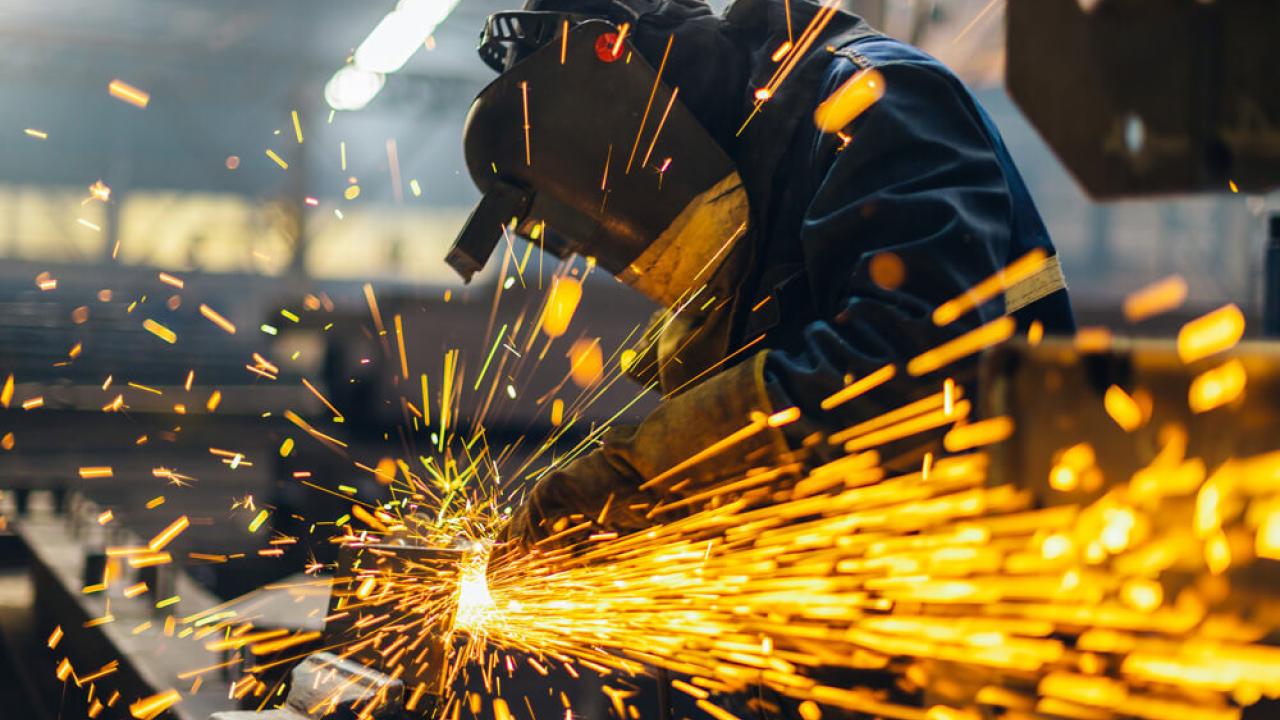
In July, the sector showed a 6.5% drop in its production levels, far from the 7.8% that manufacturing recorded in the same period. “The lack of investment projects and the increase in fixed costs keep us in a state of alert and concern regarding the continuity of our companies,” said the president of ASIMET, Fernando García.
Bad news again for the Chilean metalworking sector. Unlike the manufacturing industry, which according to the Monthly Index of Economic Activity (Imacec) for July registered a growth of 7.8%, this sector showed a fall in its activity of 6.5% in the same period.
According to the president of the Association of Metallurgical and Metalworking Industries (ASIMET), Fernando García, this meager result in the seventh month of the year was marked by the decline recorded in the Basic Iron and Steel Industries subsector, which had a drop in its production levels of 38%, compared to the same period in 2023.
The above was generated by a decrease in the production of iron or steel bars and rods.
With this result, the sector has accumulated a 3.5% decline in its activity in the first seven months of 2024.
Commenting on the sectoral figures, the union leader said that the main cause of this poor performance is the lack of investment projects in the industrial sector, which has generated a lower demand for products. “The shortage of investment projects and the increase in fixed costs keep us in a state of alert and concern regarding the continuity of our companies,” he said, adding that the crisis in the construction sector has also affected them:
"It is a sector that has not managed to recover, which affects us very directly, since we are highly dependent on that industry. When countries grow strongly, it is normal for construction to do so as well, but in Chile the opposite is happening, we have grown very slowly in the last decade and that is taking its toll on us," he said.
In this regard, he stressed the need to attract investments for the generation of new projects that stimulate the metalworking and metalworking sector and the economy in general, for which it is essential that the authority works to provide certainty for investors.
"Today, more than ever, we must promote public-private collaboration and move forward with reforms such as the modernization of the State so that the country becomes an attractive hub for investment, which is the first step to getting back on the path to growth," the executive said in a statement.
He added that, as a manufacturing sector, they expect the Government to advance in measures that compensate and achieve a balance for the greater expense that the implementation of labor improvements has meant for the industry, so that companies can continue to compete. “This can only be achieved by increasing productivity, and in this area the State has a lot to do, especially in the field of education, implementing substantial improvements in the quality of the system, and promoting innovation and technology,” said García.
Finally, the president of ASIMET recalled that the industrial sector “is the one that provides more and better jobs, drives innovation and technological progress, which leads to improvements in productivity, and allows countries to diversify their sources of income. That is why we urge our authorities to give it the value it deserves, accelerating the initiatives that are in Congress aimed at boosting its competitiveness in a global context.”









